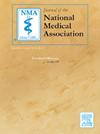打击医学教育中的种族主义:问题、定义、原则和实际步骤。
IF 2.5
4区 医学
Q1 MEDICINE, GENERAL & INTERNAL
引用次数: 0
摘要
种族主义仍然是医学领域的一个重大问题,深刻影响着少数民族医学生。这些学生面临着独特的挑战——包括微侵犯、内隐偏见、系统障碍和公开歧视——影响着他们的教育、心理健康、职业轨迹和提供同情关怀的能力。尽管取得了一些进展,但结构性障碍和代表性不足仍然存在,这突出表明需要进行系统性改革。这篇观点论文探讨了在医学教育中培养反种族主义文化的定义、原则和实际步骤。它强调了发展自我宣传、建立支持网络和为少数民族学生实行持续学习的重要性,同时倡导建立包容性空间、指导计划、课程改革和财政支持等制度战略。通过将个人韧性与坚定的机构支持相结合,医学教育可以走向真正的公平和包容,确保所有学生都能茁壮成长,并为更公平的医疗保健系统做出贡献。本文章由计算机程序翻译,如有差异,请以英文原文为准。
Combating racism in medical education: Problems, definitions, principles and practical steps
Racism remains a significant issue in the medical field, profoundly affecting minority medical students. These students face unique challenges — including microaggressions, implicit biases, systemic barriers, and overt discrimination — impacting their education, mental health, career trajectories, and ability to provide compassionate care. Despite some progress, structural obstacles and underrepresentation persist, highlighting the need for systemic changes. This viewpoint paper explores definitions, principles, and practical steps for fostering antiracist cultures within medical education. It emphasizes the importance of developing self-advocacy, building support networks, and practicing continuous learning for minority students, while advocating for institutional strategies such as creating inclusive spaces, mentorship programs, curriculum reform, and financial support. By combining personal resilience with unwavering institutional support, medical education can move towards true equity and inclusion, ensuring that all students can thrive and contribute to a more equitable healthcare system.
求助全文
通过发布文献求助,成功后即可免费获取论文全文。
去求助
来源期刊
CiteScore
4.80
自引率
3.00%
发文量
139
审稿时长
98 days
期刊介绍:
Journal of the National Medical Association, the official journal of the National Medical Association, is a peer-reviewed publication whose purpose is to address medical care disparities of persons of African descent.
The Journal of the National Medical Association is focused on specialized clinical research activities related to the health problems of African Americans and other minority groups. Special emphasis is placed on the application of medical science to improve the healthcare of underserved populations both in the United States and abroad. The Journal has the following objectives: (1) to expand the base of original peer-reviewed literature and the quality of that research on the topic of minority health; (2) to provide greater dissemination of this research; (3) to offer appropriate and timely recognition of the significant contributions of physicians who serve these populations; and (4) to promote engagement by member and non-member physicians in the overall goals and objectives of the National Medical Association.

 求助内容:
求助内容: 应助结果提醒方式:
应助结果提醒方式:


